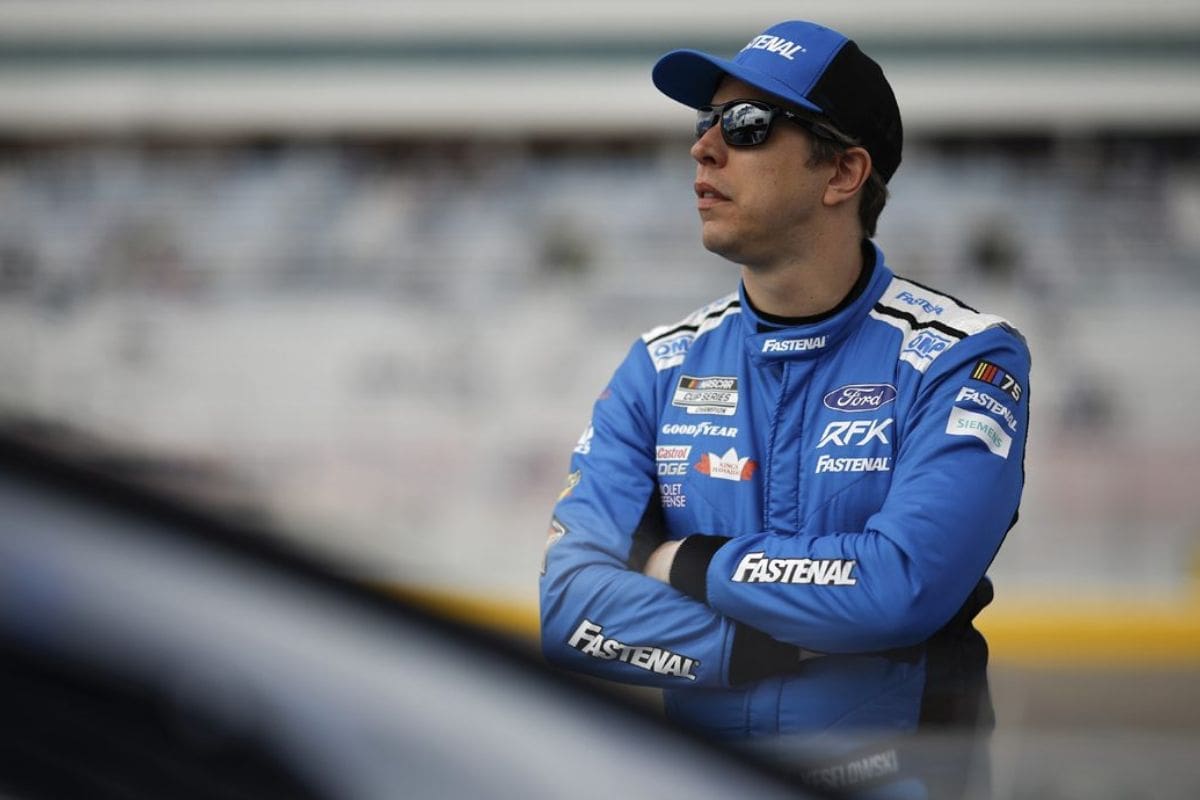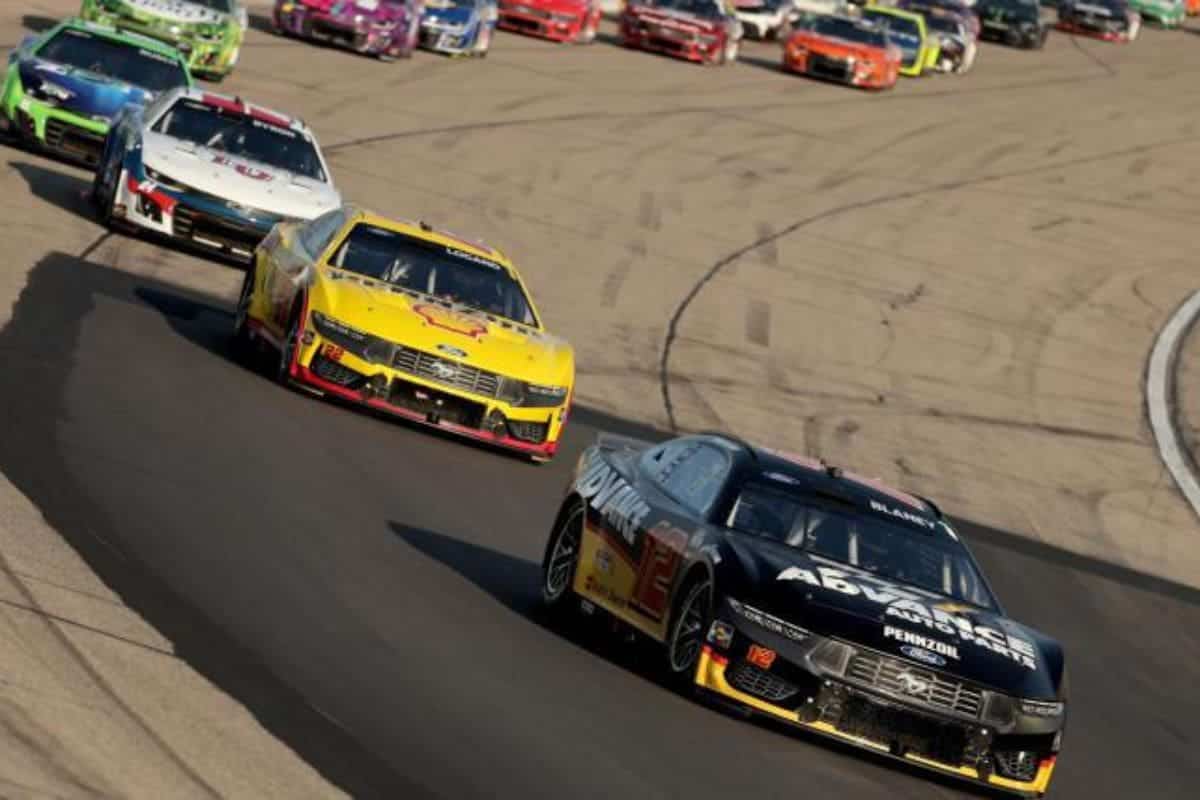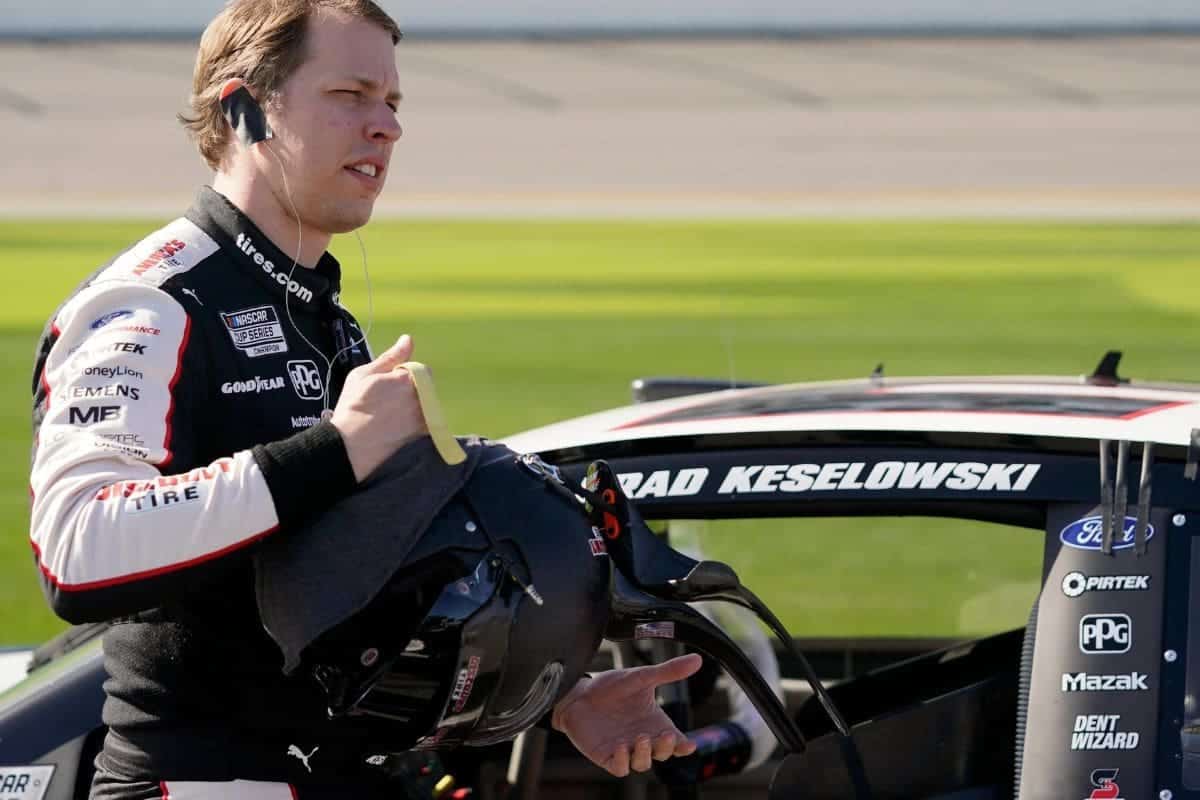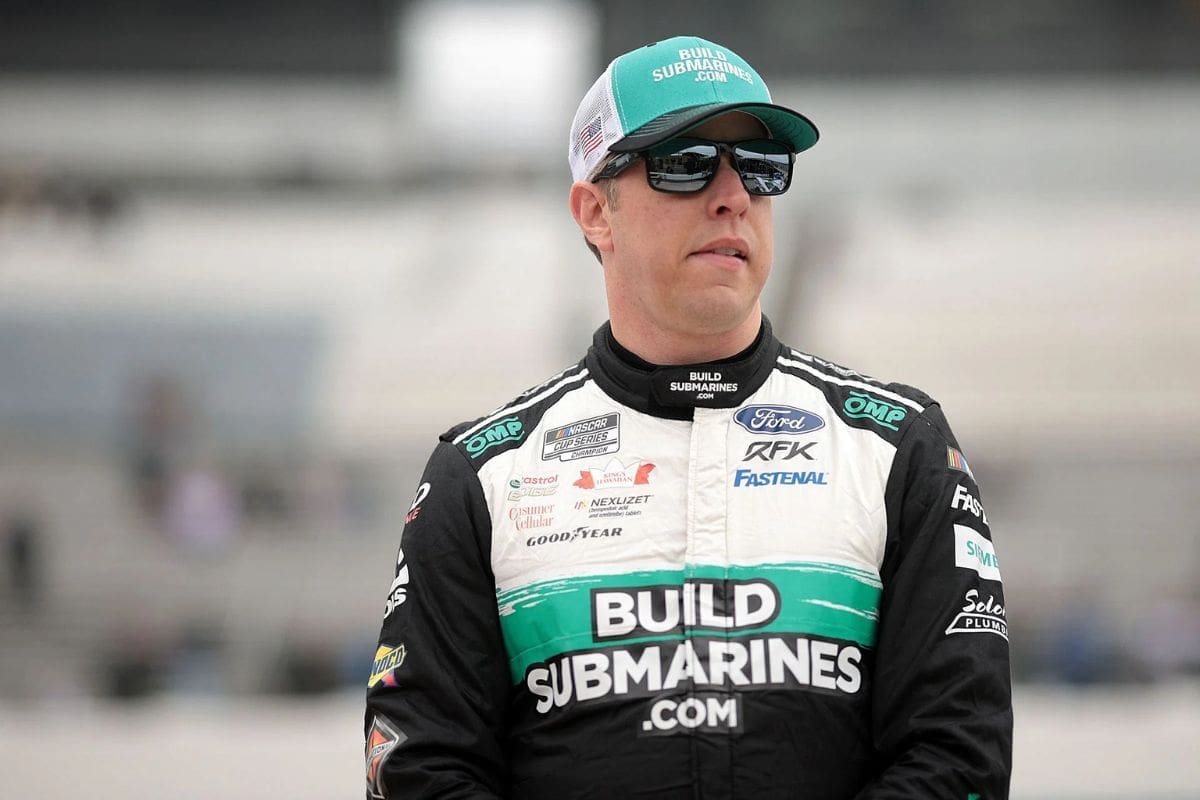Brad Keselowski Takes Aim at NASCAR: Brad Keselowski‘s recent critique of NASCAR’s strategic pivot towards new trends, such as its expansion into major urban markets, has sparked an essential debate about the sport’s future direction. With his deep-rooted understanding of NASCAR’s heritage, Keselowski questions whether these initiatives might alienate the core fan base that has long sustained the sport’s popularity. His observations highlight a tension between innovation and tradition, urging NASCAR to carefully consider the potential ramifications of this shift. As the sport navigates this complex landscape, Keselowski’s insights provide a compelling basis for evaluating how best to balance growth with preserving its storied past.
Key Highlights
- Keselowski questions NASCAR’s expansion into major urban markets and its impact on traditional fan engagement.
- He emphasizes the enduring appeal and loyalty of traditional NASCAR fans.
- Keselowski calls for a strategic introspection to balance innovation with NASCAR’s historical roots.
- He critiques NASCAR’s focus on new trends, urging nurturing of existing fan relationships.
- Keselowski highlights the contrast in fan engagement levels between traditional and urban venues.
NASCAR’s Heritage and Appeal
Rooted in a rich history that spans 75 years, NASCAR’s heritage evokes a deep sense of nostalgia and emotional connection among its dedicated fanbase. This connection is not merely a byproduct of the sport’s longevity but an intrinsic part of its identity, deeply embedded in American motorsports.
Unlike the global circuits of Formula One, which dazzle with their cosmopolitan glamour, NASCAR’s appeal lies in its distinctly American roots, marked by a steadfast loyalty to drivers and teams that often transcend generations.
The sport’s origins can be traced back to the bootlegging era of the 1930s, where drivers honed their skills evading law enforcement on winding rural roads. This rebellious spirit laid the groundwork for NASCAR’s formal inception in 1948, under the leadership of Bill France Sr.
Over the decades, NASCAR has evolved, yet it retains a core ethos that resonates with its fanbase: the celebration of speed, skill, and the resolute will to win.
One cannot underestimate the emotional pull NASCAR exerts on its followers. The connection between fans and their favorite drivers is almost familial, reinforced by the accessibility of drivers and the community-centric nature of the sport. This is a stark contrast to the often aloof, highly commercialized aura of Formula One.
NASCAR fans are known for their steadfast loyalty, often rooted in shared experiences at iconic tracks, from Daytona to Talladega, where history and heroism are etched into the asphalt.
Iowa Speedway’s Milestone in NASCAR History
The NASCAR Cup Series’ inaugural race at Iowa Speedway marks a significant milestone in the sport’s history, highlighting the tradition of grassroots racing with the evolving dynamics of modern NASCAR competition. This long-anticipated event, nearly two decades in the making, introduced the premier series to the heartland of America, a region steeped in racing heritage.
Iowa Speedway, a 7/8-mile oval known for its unique blend of short-track intensity and intermediate-track speed, provided an ideal venue to celebrate the sport’s past while embracing its future.
This 350-lap spectacle not only captivated the devoted fanbase but also demonstrated NASCAR’s strategic efforts to balance tradition with innovation. Despite initial concerns regarding the recent track repaving, the race delivered an engaging and competitive experience, confirming the track’s potential to become a staple in the Cup Series calendar. The repaving project, though controversial, ultimately improved the racing surface, leading to closer competition and more dramatic on-track battles.
The inclusion of Iowa Speedway in the Cup Series schedule highlights NASCAR’s commitment to expanding its reach and revitalizing its connection with grassroots racing communities. By bringing top-tier racing to a region historically underrepresented in the series, NASCAR has tapped into a rich vein of local support and enthusiasm. This move not only broadens the sport’s geographic footprint but also reinforces its dedication to honoring the roots of American motorsports.
Brad Keselowski’s Perspective on NASCAR’s Direction
Building on the momentum generated by the successful event at Iowa Speedway, Brad Keselowski offers a critical perspective on NASCAR’s recent strategic shifts, particularly questioning the necessity and impact of expanding into major urban markets like Chicago. Keselowski’s considerations revolve around whether these new ventures truly serve the core fan base or dilute the sport’s intrinsic value, which is heavily rooted in its grassroots origins.
“When we go to the big markets – L.A., Chicago, New York, or international…We sometimes lose sight of the fact, why don’t we just serve the fans we already have? I think it takes a balancing act.” – (Keselowski)
Keselowski highlights the passionate reception at Iowa Speedway as representative of NASCAR’s enduring appeal among traditional fans. He argues that NASCAR’s essence thrives in environments where fans share a deep, generational connection to racing—a bond that might be overlooked in the pursuit of attracting new, urban audiences.
Moreover, Keselowski’s perspective is rooted in a deep understanding of what fuels NASCAR’s loyal following. He emphasizes the importance of nurturing these existing relationships rather than chasing uncertain gains in untested markets. The allure of urban expansion, he suggests, should be carefully weighed against the potential alienation of a dedicated fan base that has steadfastly supported the sport through decades.
Fan Reception and NASCAR’s Strategic Considerations
Evaluating fan reception at venues like Iowa Speedway reveals critical insights into NASCAR’s strategic considerations for balancing traditional values with modern innovations. The enthusiastic fan support observed at Iowa Speedway highlights an ongoing dialogue within NASCAR’s leadership about the best direction for the sport. The positive response from fans has prompted NASCAR executives to ponder not just the viability of maintaining historical tracks, but also how these venues can be improved to deliver a superior fan experience.
“What I saw in Iowa – I loved that by the way – was fans that wanted us. Passionate fans were like, We’ve been waiting our entire life…to have a Cup race close by and I finally have it and it means the world to me. Those are the fans who come back, they don’t just come one year…They love our sport.” – (Keselowski)
This surge in fan engagement at traditional tracks like Iowa Speedway serves as a barometer for NASCAR’s broader strategy, which is increasingly caught between honoring its storied past and embracing contemporary trends. The organization faces a complex challenge: devising a roadmap that integrates modern amenities and cutting-edge technology without alienating its core fan base, which often favors the sport’s historical roots.
“Sometimes I think that we forget about that when we’re chasing the new shiny things of whatever market it might be.” – (Keselowski)
NASCAR’s strategic considerations are further complicated by the need to stay competitive in a rapidly evolving sports entertainment landscape. The push to innovate—through initiatives like the introduction of new car models, digital fan engagement platforms, and diversified race formats—comes with the risk of straying too far from the elements that have traditionally defined the sport. Conversely, an overemphasis on tradition may hinder NASCAR’s ability to attract a younger, more digitally savvy audience.
Consequently, the enthusiastic reception at Iowa Speedway has catalyzed internal discussions on the balance of these contrasting elements. NASCAR’s leadership appears to be acutely aware that the path forward requires a delicate blend of innovation and tradition, ensuring that the sport remains relevant and respected. This approach will likely shape future decisions on race venues and fan engagement strategies.
Future Prospects
As NASCAR navigates the intricate balance between tradition and innovation, Iowa Speedway’s emerging role in future race schedules signifies a promising opportunity for the sport to harmonize fan enthusiasm with strategic advancements.
“enthusiasm when arriving at the racetrack.” – (Buescher)
“It’s definitely a cool place to see everyone show up and want to see a NASCAR race.” – (Logano)
The track’s potential is highlighted by positive feedback from the racing community and fervent advocacy from influential figures like Dale Earnhardt Jr., who has championed the idea of adding a second race at this venue. This enthusiasm is not merely anecdotal but mirrors a broader trend of fans yearning for diverse and engaging racing experiences.
NASCAR’s forward-thinking approach to integrating Iowa Speedway into its schedule demonstrates a commitment to both enhancing the sport’s appeal and addressing logistical and competitive aspects. The governing body’s dedication to refining track conditions indicates a keen responsiveness to fan preferences, ensuring that the authenticity of racing is preserved while exploring new frontiers.
“We went into the weekend with a lot of unknowns. As I said last week, our goal going into Iowa when we announced it last October was not to repave. We wanted to get that first race on that old pavement and kind of get a data point, but that just wasn’t the case. Some areas needed some attention and we did that, and we have what we had there this past weekend.” – (Sawyer)
- Strategic Location: Iowa’s geographical positioning offers logistical advantages, potentially drawing in a diverse audience from the Midwest and enhancing regional interest in the sport.
- Influential Advocacy: Support from prominent figures in the racing community, such as Dale Earnhardt Jr., adds credibility and momentum to the push for expanded use of the venue.
- Adaptive Strategy: NASCAR’s willingness to refine track conditions and adjust its schedule demonstrates a strategic mindset aimed at long-term growth and sustainability.
News in Brief: Brad Keselowski Takes Aim at NASCAR
Keselowski’s criticism highlights the tension between NASCAR’s traditional roots and its pursuit of modern trends. By emphasizing the difference in fan engagement between established and urban venues, Keselowski argues for a strategic balance that prioritizes the loyalty of the core fan base.
This viewpoint calls for a careful assessment of NASCAR’s expansion strategies, ensuring that innovation does not isolate long-standing supporters. Ultimately, maintaining a harmonious relationship between heritage and progress is crucial for the sport’s sustainable growth.
ALSO READ: Brad Keselowski and Buescher Reflect on Truex Jr’s Racing Legacy




